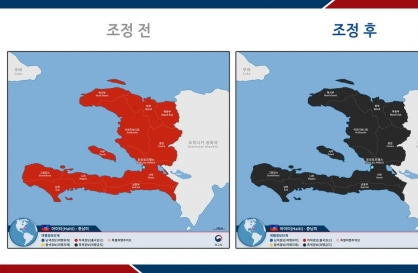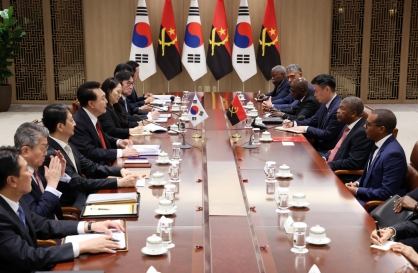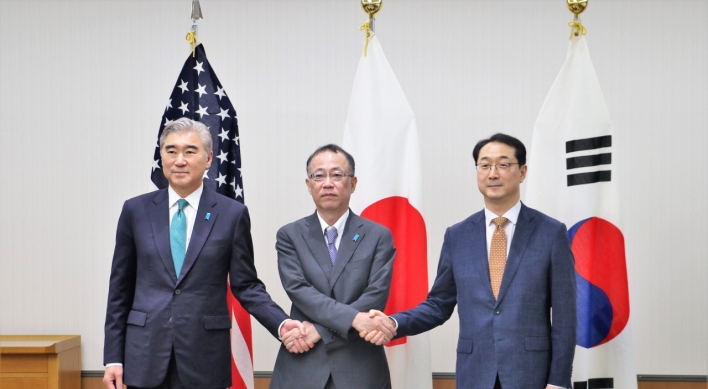Court rejects evidence against S. Korean accused of illegal exports to Iran
By KH디지털2Published : May 11, 2015 - 09:15
A U.S. district court has struck down evidence used in the indictment of a South Korean businessman accused of illegally selling banned items to Iran, saying the evidence was seized in violation of his right to privacy.
Kim Jae-shik, head of Karham Eng. Corp. in Seoul, was indicted in March 2013 on charges that he conspired to export U.S. aircraft parts without the required export licenses to intermediaries in China and Korea and ultimately customers in Iran.
The aircraft parts, known as "accelerators," can be used in missile navigation systems.
Part of the evidence used in the indictment was a laptop computer that a special Homeland Security Department agent seized from Kim when he was departing the U.S. from Los Angeles International Airport in December 2012.
In March this year, Kim filed a motion to suppress the evidence, saying the airport search of the laptop violated his privacy. Kim's case is pending at the U.S. District Court for Washington D.C., and Kim is out on bail after an arrest in late 2014.
The court accepted Kim's argument.
"There was little or no reason to suspect that criminal activity was afoot at the time Kim was about to cross the border, and there was little about this search -- neither its location nor its scope and duration -- that resembled a routine search at the border," Judge Amy Berman Jackson said in a decision announced Friday.
The government had argued that a laptop computer was simply a "container" examined pursuant to its authority to conduct warrantless searches at the border, and its unfettered right to search cargo at the border is aimed at protecting the country.
But the judge pointed out that the search of Kim's laptop began well after Kim had already departed, and it was conducted approximately 150 miles away from the airport. She also said that the government also engaged in an extensive examination of the entire contents of Kim's hard drive after it had already been secured and it accorded itself unlimited time to do so.
"The fundamental inquiry required under the Fourth Amendment is whether the invasion of the defendant's right to privacy in his papers and effects was reasonable under the totality of the circumstances," the judge said. "And the court finds it was not." (Yonhap)
Kim Jae-shik, head of Karham Eng. Corp. in Seoul, was indicted in March 2013 on charges that he conspired to export U.S. aircraft parts without the required export licenses to intermediaries in China and Korea and ultimately customers in Iran.
The aircraft parts, known as "accelerators," can be used in missile navigation systems.
Part of the evidence used in the indictment was a laptop computer that a special Homeland Security Department agent seized from Kim when he was departing the U.S. from Los Angeles International Airport in December 2012.
In March this year, Kim filed a motion to suppress the evidence, saying the airport search of the laptop violated his privacy. Kim's case is pending at the U.S. District Court for Washington D.C., and Kim is out on bail after an arrest in late 2014.
The court accepted Kim's argument.
"There was little or no reason to suspect that criminal activity was afoot at the time Kim was about to cross the border, and there was little about this search -- neither its location nor its scope and duration -- that resembled a routine search at the border," Judge Amy Berman Jackson said in a decision announced Friday.
The government had argued that a laptop computer was simply a "container" examined pursuant to its authority to conduct warrantless searches at the border, and its unfettered right to search cargo at the border is aimed at protecting the country.
But the judge pointed out that the search of Kim's laptop began well after Kim had already departed, and it was conducted approximately 150 miles away from the airport. She also said that the government also engaged in an extensive examination of the entire contents of Kim's hard drive after it had already been secured and it accorded itself unlimited time to do so.
"The fundamental inquiry required under the Fourth Amendment is whether the invasion of the defendant's right to privacy in his papers and effects was reasonable under the totality of the circumstances," the judge said. "And the court finds it was not." (Yonhap)


















